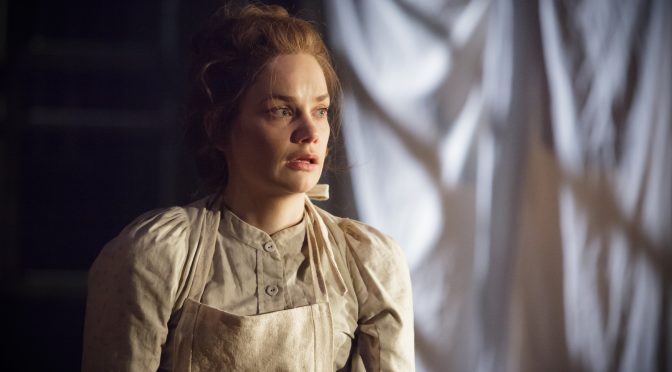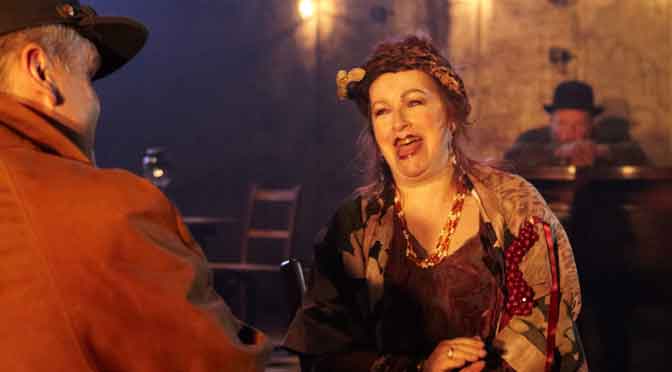Hoxton Hall has been transformed for a short run of three one-act plays by Eugene O’Neill. Billed as The El. Train, with the action set beneath the bustle of the New York Subway at the turn of the century, there are no long journeys to endure here as the short pieces run right on time. O’Neill’s bleak themes of desperation are easily recognisable, but this is an night of drama and action, backed by a superb jazz soundtrack, with original music from Alex Baranowski, that adds a satisfying unity to the evening.
The first two plays, Before Breakfast and The Web, are superbly directed by Sam Yates. Both star two-time Olivier Award winning Ruth Wilson who gives versatile performances as a downtrodden wife and an abused prostitute. Before Breakfast serves as a commanding monologue, produced with gripping precision from both director and actor. Special praise goes to the carefully delivered humour brought out in the production – a clear indication of the intelligence behind the whole evening. The Web is an even darker exploration of a criminal underworld. The unbelievable cruelty of a pimp, portrayed effectively by Zubin Varla, an heroic rescue, and a baby thrown in for extra emotion – there’s a little too much going on for its own good. But Yates does a superb job to embrace and pace the action. Wilson’s reappearance in this role, as a consumptive streetwalker, close to death, is tremendous.
A transformation marks the finest theatrical moment of the final piece as well, with Nicola Hughes metamorphosing into an elderly woman as she sings between the plays. In The Dreamy Kid, Hughes’ Mammy Saunders is on her deathbed, waiting to say goodbye to a beloved grandchild. He is being watched by the police and his visit will be a trap as his crime catches up with him. The play marks Ruth Wilson’s directorial debut, a cleverly modest one, which takes a lead from Yates’ work and maintains the high standards and exciting tension.
And to round off a fine evening, an accompanying bar benefits from the atmosphere the talented musicians on stage have established so well. The Hell Hole Saloon is a pop-up venue that ostensibly takes its inspiration from the Golden Swan saloon O’Neill frequented. It’s much nicer really, with themed cocktails, including a delicious hot buttered rum which is perfect for the season, and fantastic service under the supervision of award-winning bartender Joe Stokoe.
Until 30 December 2013
Photo by Marc Brenner
Written 14 December 2013 for The London Magazine


